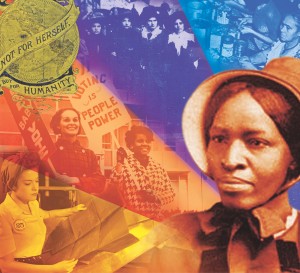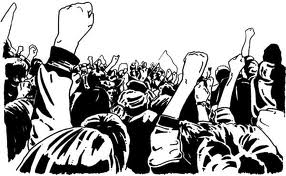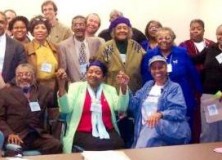The SCRC was created as a vehicle to advance the movement for Social and Economic Justice—to enlist science and technology in the fight for peace and justice. Our brand of CBPR grows out of this commitment.
 We believe that classism, racism, sexism, along with other anti-human characteristics of capitalism are the fundamental reasons why communities experience poor health outcomes, live in polluted environments, and are prevented from achieving their full potential and their dreams for themselves and their children.
We believe that classism, racism, sexism, along with other anti-human characteristics of capitalism are the fundamental reasons why communities experience poor health outcomes, live in polluted environments, and are prevented from achieving their full potential and their dreams for themselves and their children.
In order for CBPR to be more than another “outreach” method, practitioners must begin with taking seriously the political and social exploitation of working people by the current system. Generally, practitioners of Community-Based Participatory Research are from academia or from service agencies. They bring the view that CBPR can assist the process of providing services or information to communities—important and useful work.
We believe, however, that collaborations with communities should envision a more ambitious agenda and goal, i.e., to be a part of a change in society that embraces human need instead of corporate greed. Our practices in the application of Principles of CBPR are informed and guided by the long tradition of working people striving to achieve a more just and fulfilling world for their communities and for their future.
The SCRC was launched as a continuation of the work of institutions such as the Highlander Center.  We wanted to participate in democratizing science using popular education approaches shaped by Friere, Alinsky, Fals Borda, and the Science for the People Movement. Our roots are in the fight for black liberation, defending the rights of labor and commitments to labor unions, and working for truly democratic decision-making in society.
We wanted to participate in democratizing science using popular education approaches shaped by Friere, Alinsky, Fals Borda, and the Science for the People Movement. Our roots are in the fight for black liberation, defending the rights of labor and commitments to labor unions, and working for truly democratic decision-making in society.
A CBPR project conceived and implemented with the SCRC will:
- Begin with community defined questions and objectives and, from initiation, implement action steps to address community problem(s).
- Endeavor to expand power of working people and to increase social and economic justice.
- With the leadership of the community, create rules, procedures, and a code of ethics specific to the project and community as a whole.
- Engage with genuine representatives of the community and build trust among all participants and partners.
- Share power, decision-making, and resources (including funding) equitably.
- Utilize the knowledge and expertise of all partners in all elements of project activities.
- Employ popular education approach to expand understanding of all participants.
- Commit to equal ownership and control of all results and any methods and tools created.
- Commit to resource allocation and project activities that will support sustainable change beyond the time and scope of the specific projects.
- Develop new evaluation methodologies that broaden the definition of terms of success.

